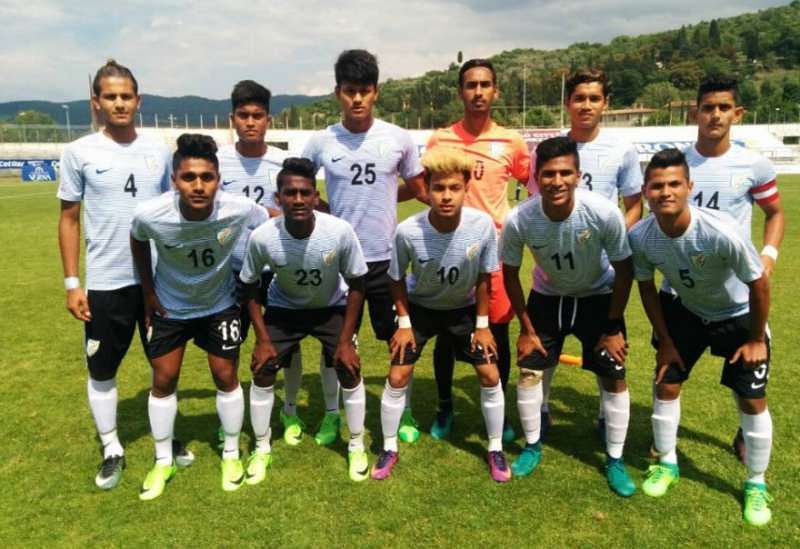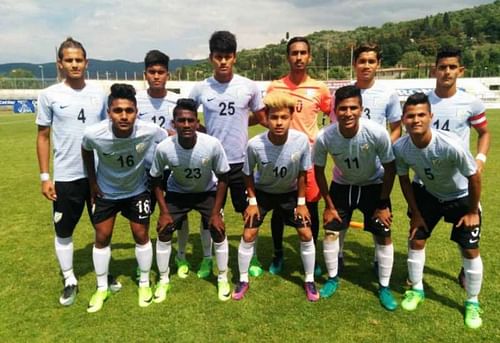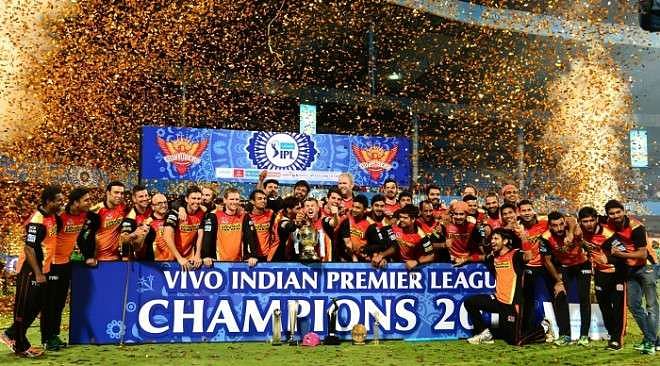
Indian football's achievements go unnoticed due to lack of live TV telecast
When Star Sports took the decision of starting up four new channels to broadcast solely foreign sports, the reason that they managed to put forward for it was that it was being done for the promotion of Indian sports. Or perhaps, it was an attempt to make sure that Indian sports garner more attention than the English Premier League, Formula One or the German Bundesliga, which were all helping them amass a massive amount of viewership.
And it seemed like a move dictated by a concern for sports in a country that has hardly batted an eye at it in the past.
But as I sat, skimming through all the sports channels available, barely harbouring and holding onto the increasingly diminishing hopes of finding a broadcast for India Under-17s football game against the Italy Under-17s side, I realised that things probably aren’t as good as most expected. Or at least, as good as they have been projected.
The Indian Colts won the game 2-0 in what is likely to go down in history as one of the most prominent ones ever, with the FIFA U-17 World Cup set to take the country by storm later this year. I was lucky to stumble upon a live coverage of the game on Facebook and thank the Indian Football Team for taking up the initiative when no one really made an effort.
For many it isn’t a usual sight, or the mere lack of it, to find themselves being let down by Indian sports channels when an important national event is ideally supposed to be televised. You can sift through all the available sports channels if the Indian senior football team is playing, but all you will end up finding are the highlights of an Indian Pro Kabbadi league game that no one cares about watching or a re-run of India’s 2014 tour of England that people have probably forgotten about. And it isn’t a surprise at all to not find a telecast of Under-17 matches.
After all, when all Indian football fans were overjoyed with the prospect of the national team playing the FIFA World Cup qualifiers, no channels took up the initiative of bagging the broadcasting rights for the matches. One certainly can’t be sure about whether doing that could have helped India qualify for the World Cup, but popularising important sporting events such as these is a piece of a jigsaw that aims at improving the situation of sports in India.
By the looks of all that’s happening in our country, this can be defined as a transition period when there’s a lot of emphasis being laid on developing sports and attempting to popularise it through all sorts of means. Competitions and leagues of sports that didn’t exist before, say the ISL or the Pro Kabbadi League, have gone on to do their bit in accentuating the importance of sports in the country. Sports channels sign lucrative deals with these leagues, helping them rack up crores of rupees and the chance to telecast something that other channels can’t. In fact, the broadcasting rights of the cash-rich IPL, which is now into it’s tenth glorified edition, sparked stiff competition between the Sony Network and the Star Sports Network when the BCCI opened the table for bids. Sony obviously came out on top in the tussle and struck a deal worth Rs 16,000 crore
And thanks to that, the amount of ad revenue that Sony racks up from the broadcast of the IPL is set to rise from Rs 1,100 crore in 2016. That seriously is a lot of money. And that in itself is one of the reasons why the country still lags behind in sports.
Two-thirds of our educated population is usually crying foul about why India can’t do well in the Olympics or why they can’t qualify for the FIFA World Cup, but it’s a group of those educated masses that don’t bother telecasting the Paralympics or the AFC Cup probably because it doesn’t reap them enough profit. As if they don’t earn an unimaginable amount of money from televising the ISL, the Pro Kabbadi League or the Hockey India League. And this one big problem that football legend Johan Cruyff talks about at length in his autobiography ‘My Turn’, saying that the presence of people who look at football from the boardroom and not those who do the vice versa is the reason why it often fails to operate well enough. There’s a need for people in there who know the game and know how and why it must be popularised in a nation that is in a frantic need of that. But, our television channels are so embroiled in fulfilling their own financial interests that they forget about what the people of the nation want. All that after promising that they are working towards improving the state of sports in our country.
One can obviously blame the sports organisations and authorities for not taking an initiative to televise the AFC Cup, the Paralympics or the football Under-17s and senior national team, but after coming up with lofty promises, the channels do nothing to take initiative too. And even in sports authorities, the problem that Cruyff talks about in his book comes to the fore and does the damage in a very subtle manner. And that’s evident by the fact that our honourable Sports Minister Mr Vijay Goel fails to pronounce the name of Andres Iniesta properly despite trying to do so multiple times right in front of Carles Puyol during the launch of the Under-17 World Cup’s ticketing sales. If only we had someone who knows sports, the state would have been entirely different.
The aforementioned tournaments may not garner the channels as many financial rewards but are likely to double or triple their viewership, judging by how popular football has become in India of late. If it’s not hypocrisy to make promises about ‘building on the domestic sports proposition in India’ by opening up four new channels and don’t use the other four to any usable effect. And if two of the country’s most prominent sports channels are tying up to do something better than just proudly advertising the English FA Cup semi-finals and the UEFA Champions League, they have to forget about what is more lucrative for them and consider what matters to the people more, to some extent.
People can go on about why the situation sports has improved in India over the past two years, but judging things on paper forces you into ignoring factors and problems that run deeper than what’s visible on the outside. And unless hypocrisy doesn’t erode, crying foul about not doing well in the Olympics or not qualifying for the FIFA World Cup will go on happening.

